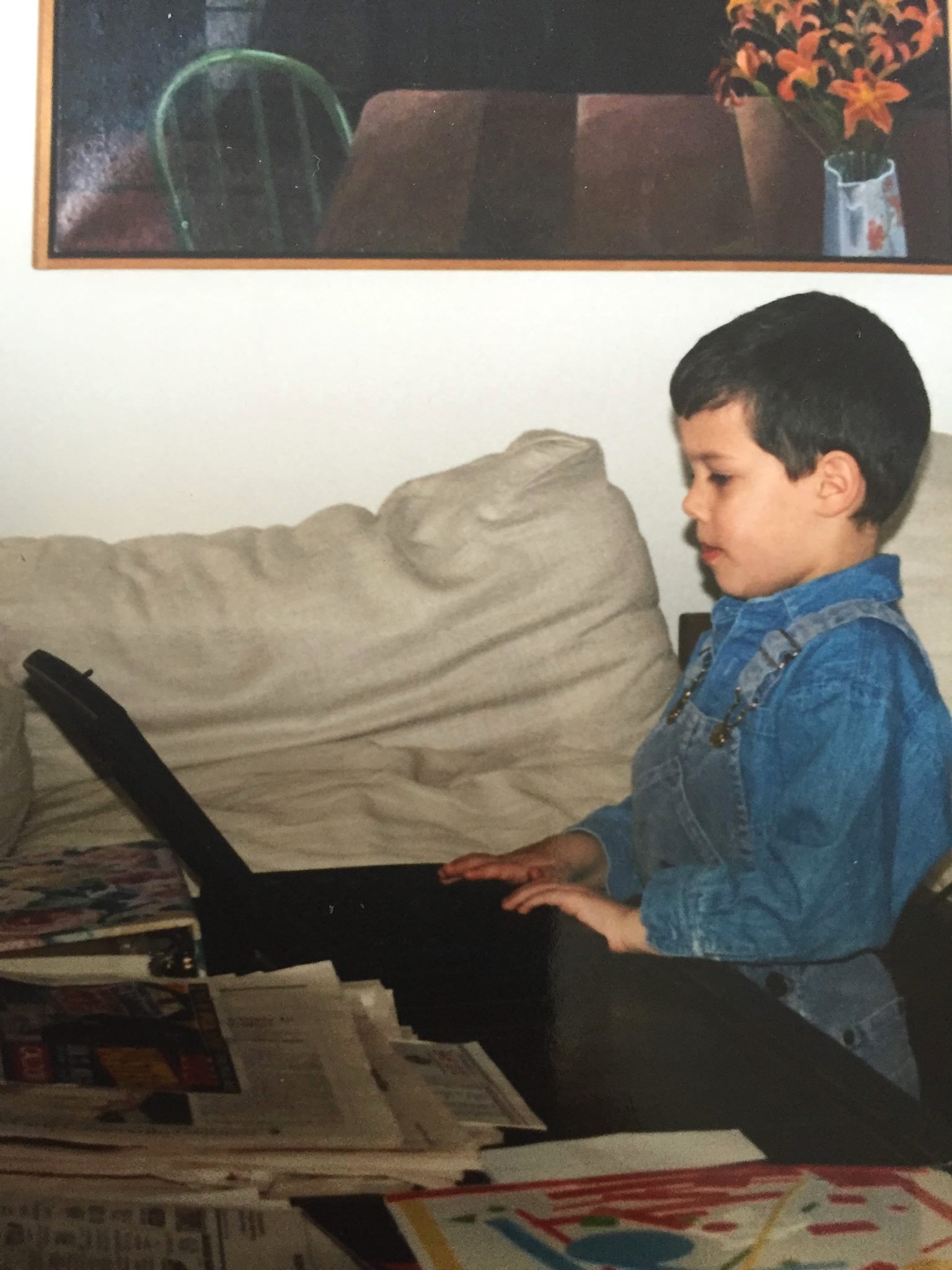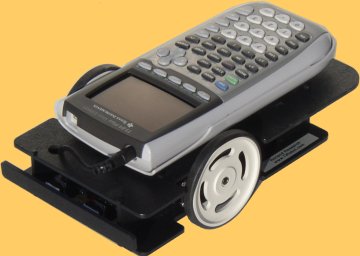Looking backward
 A few weekends ago, I was digging through a backup hard drive and realized it had been 15 years since I swapped an intro to Latin class for a Computer Science class, igniting my passion for programming. Since then, I have spent time working my way through my old projects, resurrecting them, and reminiscing.
A few weekends ago, I was digging through a backup hard drive and realized it had been 15 years since I swapped an intro to Latin class for a Computer Science class, igniting my passion for programming. Since then, I have spent time working my way through my old projects, resurrecting them, and reminiscing.
My passion for tinkering with technology started ten years earlier. Shortly after starting elementary school, my dad brought home a desktop computer running Windows 95 and set it up in the living room. Booting up a floppy disk and getting lost in a game world was amazing. I can remember getting lost for hours playing Asteroids, Centipede, Missile Command, Battlezone, Prince of Persia and Hover!, which was particularly memorable.
In middle school, I spent hours in the computer lab ‘programming’ elaborate animations in The Geometer’s Sketchpad, as the idea that I could make my own game within a Sketchpad was exciting. So, when I had the opportunity to learn to create a computer game at summer camp, I was all in. My first introduction to programming was transcribing a printout of Tetris (written in visual basic) back into a text editor. It was satisfying being able to play a game I spent hours ‘writing’. On top of that, the idea of being able to tweak and modify the game in whatever way I wanted was intriguing. The following year I was lucky enough to attend a 4-week tech-focused summer camp; there were a few programming-focused lessons between the LAN gaming tournaments. What I remember most was the frustration of getting my head around how to translate my ideas into code. My solution was to grab a pen and paper and sketch out those ideas, which earned me the ‘pen and paper’ award on my last day of camp.
 Towards the end of middle school, I got a TI-83 Plus Silver Edition Graphing Calculator for math classes. I was so excited to have a pocket-sized computer that I read the manual multiple times back to front. I was overjoyed to learn the calculator could be programmed to draw shapes and functions to solve math problems. For Christmas one year, my parents got me a two-wheeled programmable robotic vehicle controlled by the calculator. I spent a long time working out how to get the robot to run for as long as possible unsupervised and recover gracefully when it bumped into an object in its path.
Towards the end of middle school, I got a TI-83 Plus Silver Edition Graphing Calculator for math classes. I was so excited to have a pocket-sized computer that I read the manual multiple times back to front. I was overjoyed to learn the calculator could be programmed to draw shapes and functions to solve math problems. For Christmas one year, my parents got me a two-wheeled programmable robotic vehicle controlled by the calculator. I spent a long time working out how to get the robot to run for as long as possible unsupervised and recover gracefully when it bumped into an object in its path.
Three weeks into a Latin class in high school, I realized I was way over my head. So I decided to drop the course, which allowed me to pick up a photography class and, most excitingly, a computer science class. My passion for programming ignited during high school and college, building on itself and letting me combine my interests while at Bard College. Below are some formative projects which illustrate how my work has evolved over the years and milestones to use as point-in-time references.
Project Highlights & Milestones
High School (2004 - 2008)
- Completed Introduction to Computer Science
- Completed AP Computer Science
College Freshman Year (2008 - 2009)
- Started at Bard College
- Completed Object-Oriented Programming
- Completed Data Structures
College Sophomore Year (2009 - 2010)
- Completed Discrete Math
- Completed Distributed Systems
- A client/server eight-player pong variant
College Junior Year (2010 - 2011)
- Completed Theory of Computation
- Completed Databases: Theory & Practice
- Completed Design of Programming Languages
- Wrote a compiler, parser, and type checker in the Standard ML of New Jersey
- Completed The Computational Image
- Completed Artificial Intelligence
- Participated in a Google sponsored ants AI challenge
- Participated in software development and data collection for WordNet-based lexical simplification of a document
College Senior Year (2011 - 2012)
- Developed a website as a tool to catalog 1000+ of my Grandparent’s paintings Wissemann Family Trust
- Completed Algorithms
- Finished my senior thesis titled Still Moving
Post Graduation (2013 - 2016)
- Started at the Wadsworth Center researching Parkinson’s Disease and helped to publish a few papers
- Built out an SDK in Python to automate repetitive tasks (i.e., data formatting for specific tools)
- Automated the pipeline for running GWAS analysis end to end using Solaris cluster, qsub, R, Perl, and Python
- A Genome-wide Association Study Interaction Visualization
- Created a digital gut micro-biome questionnaire tool used for data entry and validation
- Created a Tribal Wars Google Chrome extension to automate some repetitive aspects of the gameplay
- Wrote a web scraper for guardian.gg and generated graphs to breakdown each leaderboard
- Created predator/prey blob simulation loosely inspired by Conway’s Game of Life